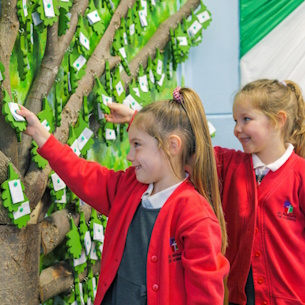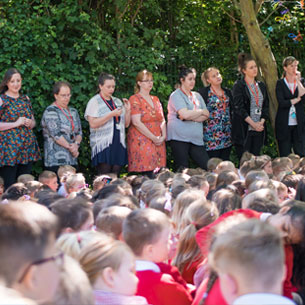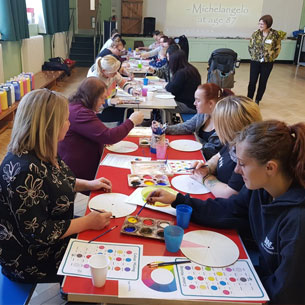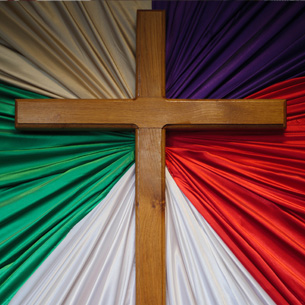PSHE/RSE
Personal, Social, heALTH, eCONOMIC aND Relationship and Sex Education
Intent
Our PSHE curriculum aims to deliver a curriculum which is accessible to all and that will maximise the outcomes for every child, resulting in them becoming healthy, independent and responsible members of society who understand how they are developing personally and socially, and to give them confidence to tackle many of the moral, social and cultural issues that are part of growing up.
The PSHE curriculum at St Michael’s provides values-based, progressive content that promotes positive behaviour, mental health, wellbeing, resilience and achievement. We want our pupils to develop the knowledge, skills and attributes they need to manage their lives, now and in the future in order to stay healthy, safe and prepare them for life and work in a modern, diverse world. We want our pupils to achieve their academic potential, and leave school equipped with skills they will need throughout later life. Through our PSHE curriculum, we aim to equip children with these attributes and the ability to implement them in different contexts.
There is a proven link between pupils' health and wellbeing, and their academic progress. Crucial skills and positive attitudes developed through comprehensive Personal, Social, Health and Economic education (PSHE) are critical to ensuring children are effective learners. At St Michael’s we use the SCARF: Safety, Caring, Achievement, Resilience, Friendship programme of learning.
SCARF is a spiral curriculum, which means that the children cover these same six themes every year, and each time they encounter a theme, it increases in complexity and reinforces previous learning. This continual revisiting with a changing focus ensures that learning becomes embedded and children continue to build upon and deepen their knowledge and understanding in all PSHE and SRE areas.
Click on the links below for further information.
Scarf is a whole school approach to promoting behaviour, safety, achievement and wellbeing and to develop our children's understanding. SCARF is centred on a values-based and ‘Growth Mindset’ approach and is more than just a PSHE scheme of work, SCARF supports great learning every day.
SCARF provides a whole-school approach to building these essential foundations – crucial for children to achieve their best, academically and socially. SCARF lesson plans are organised around the PSHE Association's Programmes of Study Learning Opportunities. Furthermore, it ensures all the elements needed to meet the new Relationships Education and Health Education statutory requirements.
SCARF is a whole-school approach consisting of lesson plans and assessment to embed a comprehensive Relationships and Health Education, PSHE Education and Wellbeing programme throughout the primary.
IMPLEMENTATION
The SCARF programme aligns fully with St Michael’s ethos of promoting wellbeing and an understanding of positive mental health and therefore provides a strong foundation for our curriculum. PSHE is taught in discrete weekly sessions from Year 1 to Year 6.
EYFS (EARLY YEARS FOUNDATION STAGE)
In the Early Years Foundation Stage, PSHE education is about making connections; it’s strongly linked to child-led activities, including play. PSHE is taught through activities that are part of topics, as well as on an individual basis to develop personal skills. Positive experiences are built through opportunities, to share and enjoy a range of different activities. Children are given the opportunity to engage in social activities, as members of a small group or occasionally during whole-class activities.
KS1 and KS2
The SCARF programme divides the year into 6 themed units:
- Me and My Relationships: includes content on feelings, emotions, conflict resolution and friendships;
- Valuing Difference: a focus on respectful relationships and British values;
- Keeping Safe: looking at keeping ourselves healthy and safe;
- Rights and Responsibilities: learning about money, living in the wider world and the environment;
- Being My Best: developing skills in keeping healthy, developing a growth mindset (resilience), goal-setting and achievement;
- Growing and Changing: finding out about the human body, the changes that take place from birth to old age and being safe.
Additional Information to Support Parents/Carers When Helping Your Children Understand Changes at Puberty
Children following the SCARF programme will already have a good understanding of their bodies, and how and why they change as they go through puberty.
Parents are recognised as children's primary educators for Relationships and Sex Education (RSE), yet many feel unprepared. Often this is because they had poor RSE themselves - from home, school, or both.
For ages 3-7, it's about helping children to understand what a good friend is and how to be one, about different types of families, what the differences are between boys and girls, and what the private parts of the body are, helping them to keep safe.
For ages 8-11 it's building on the information above and developing further knowledge about the physical and emotional changes that take place, alongside learning the reasons for the changes in more detail. This includes developing an understanding of how people are able to reproduce - if they want to - when they’re adults.
The following information and resources are designed to support you in helping your child at each stage, to become more aware of themselves and others, to help them navigate the emotional and physical changes that take place during puberty, as well as learning about sex in the context of safe, loving relationships.
Click on the following link to see the suggested reading list including books to share with children and books to support parents:
Useful websites for children (we recommend you watch them first so you are prepared for any questions), click on the following link:
Useful websites for parents to support parents, click on the following link:


























